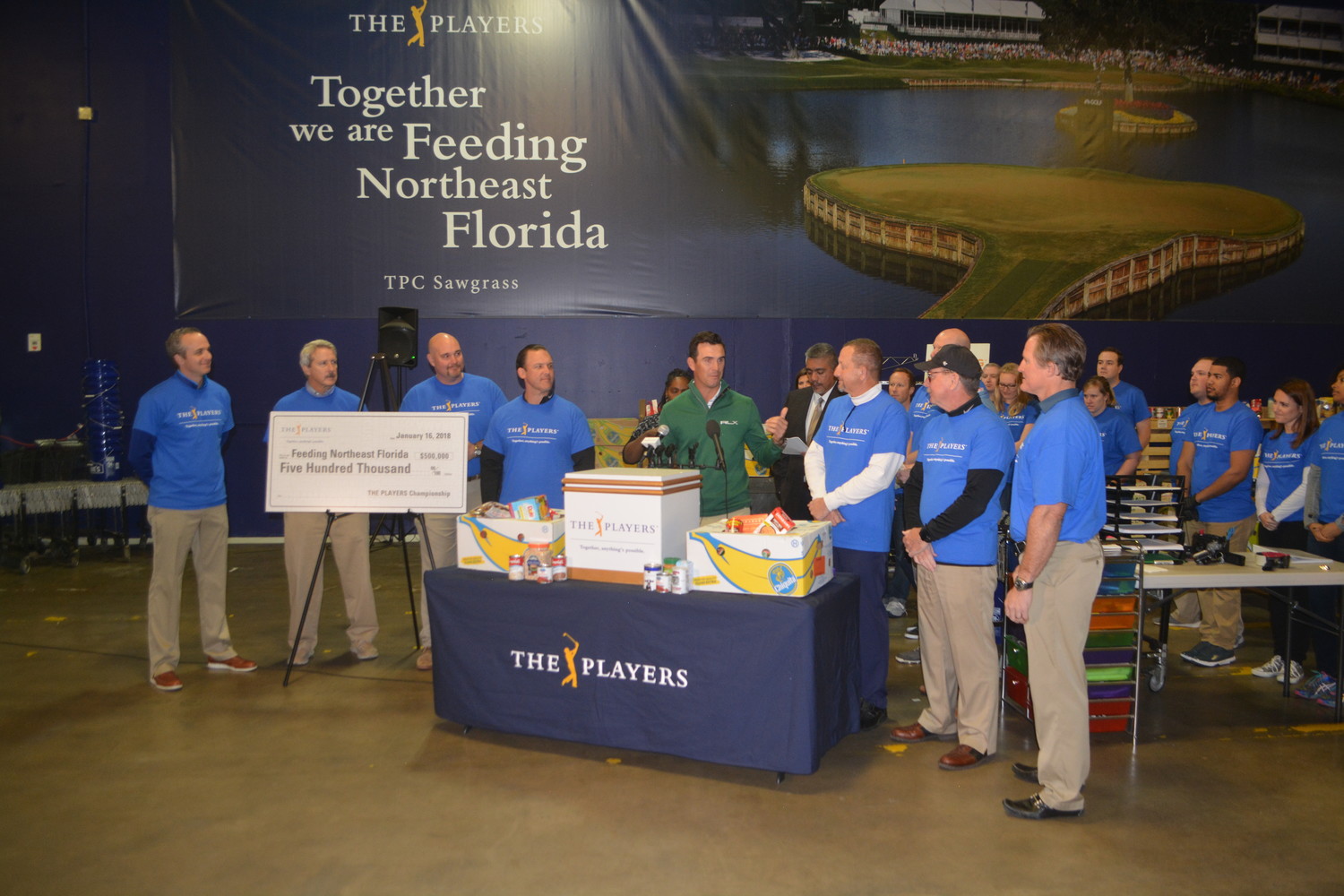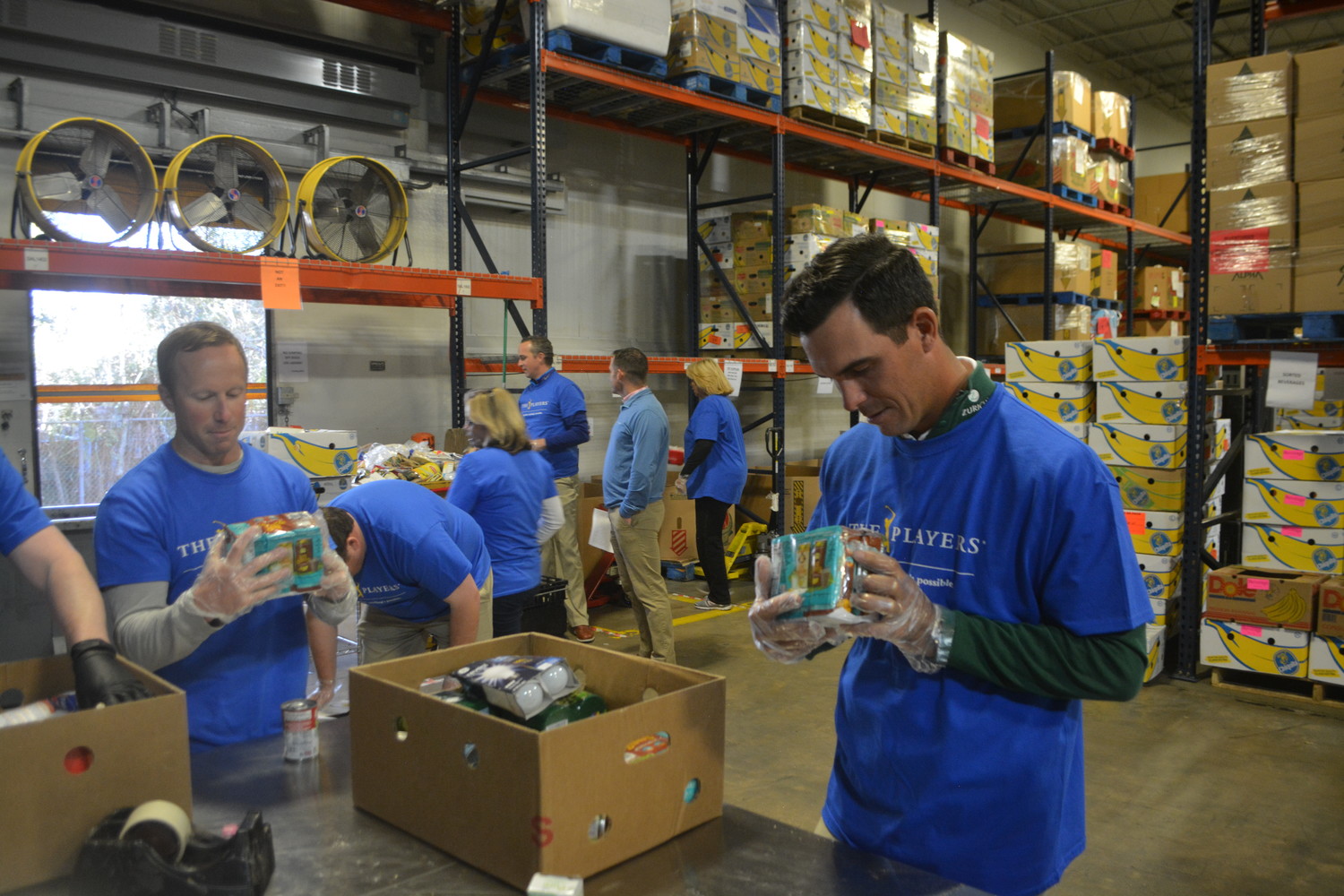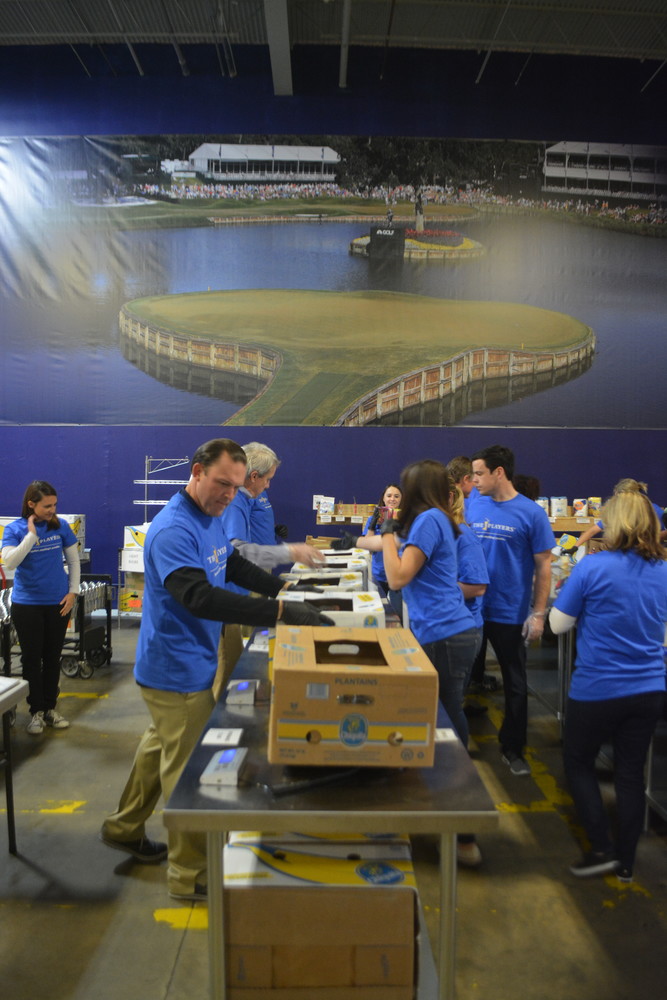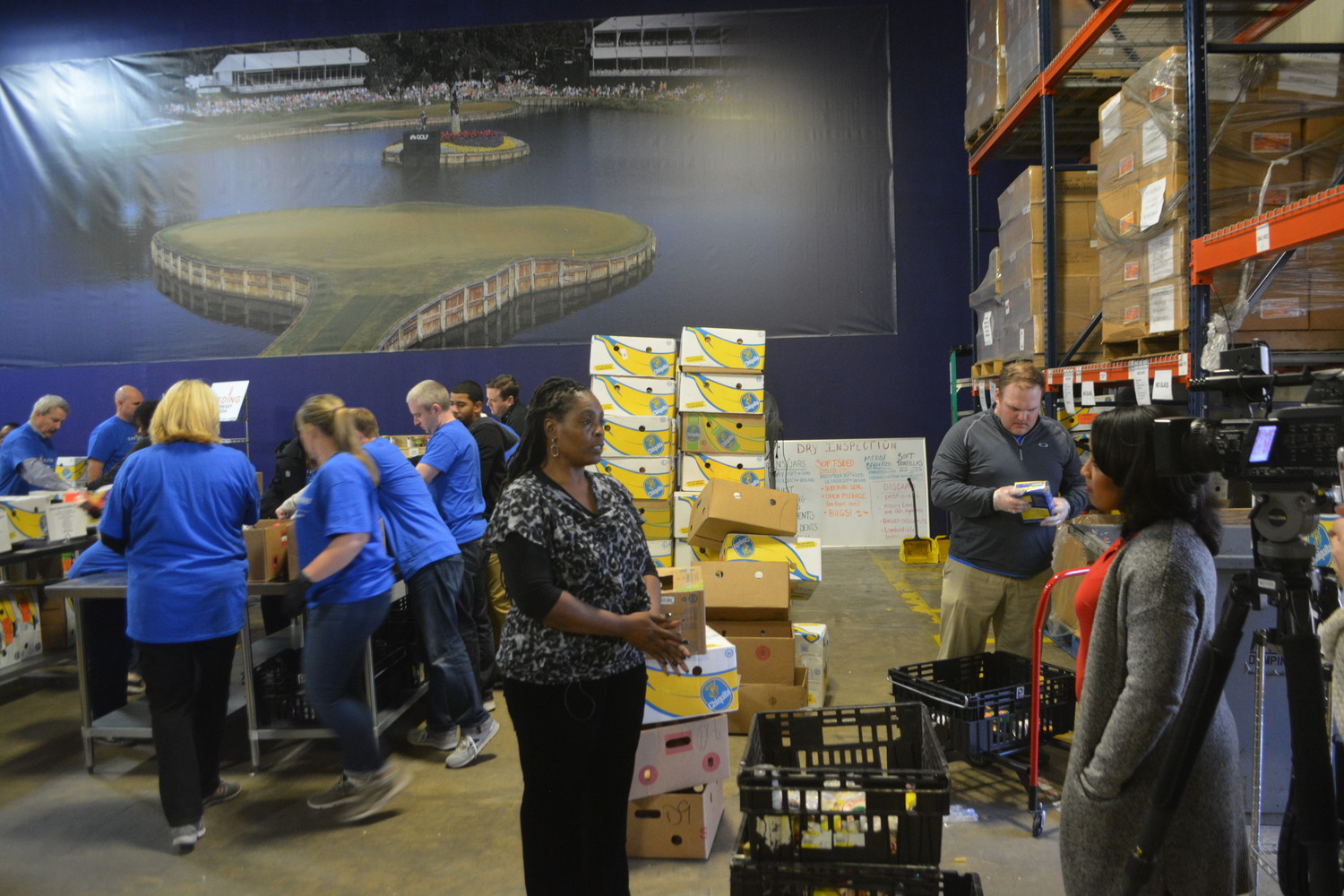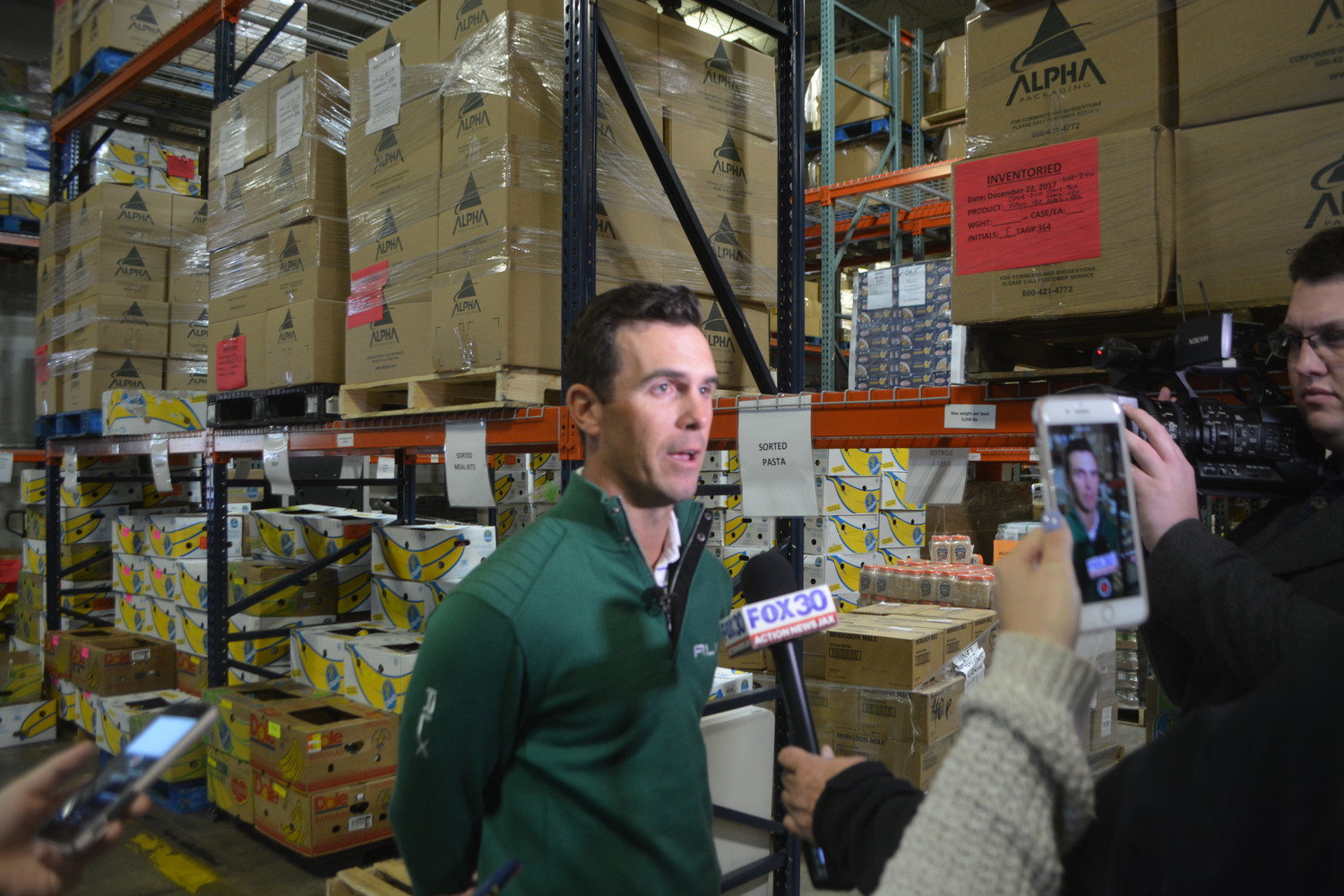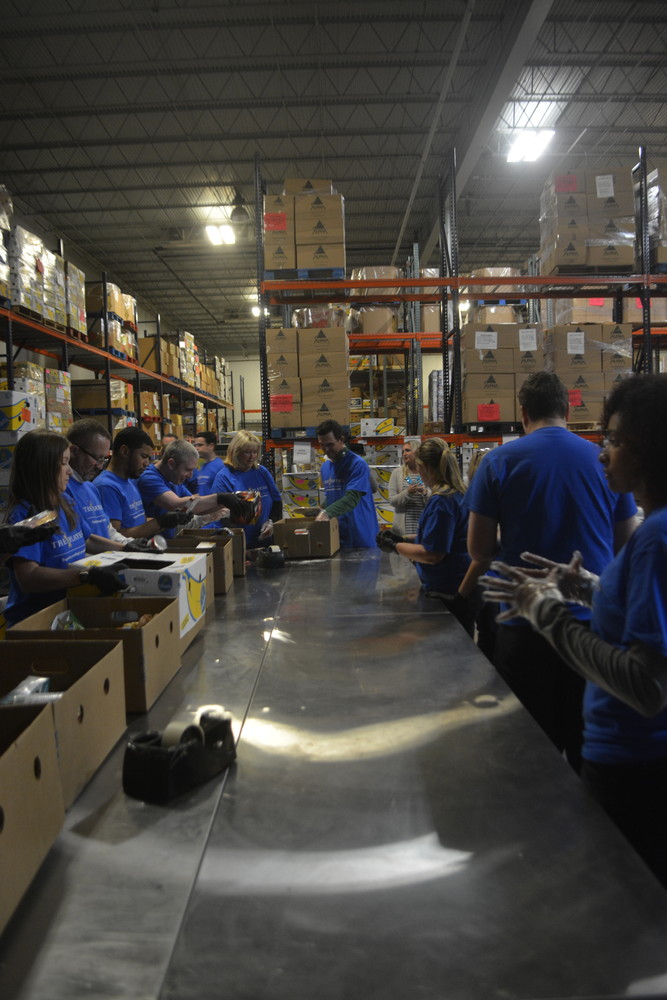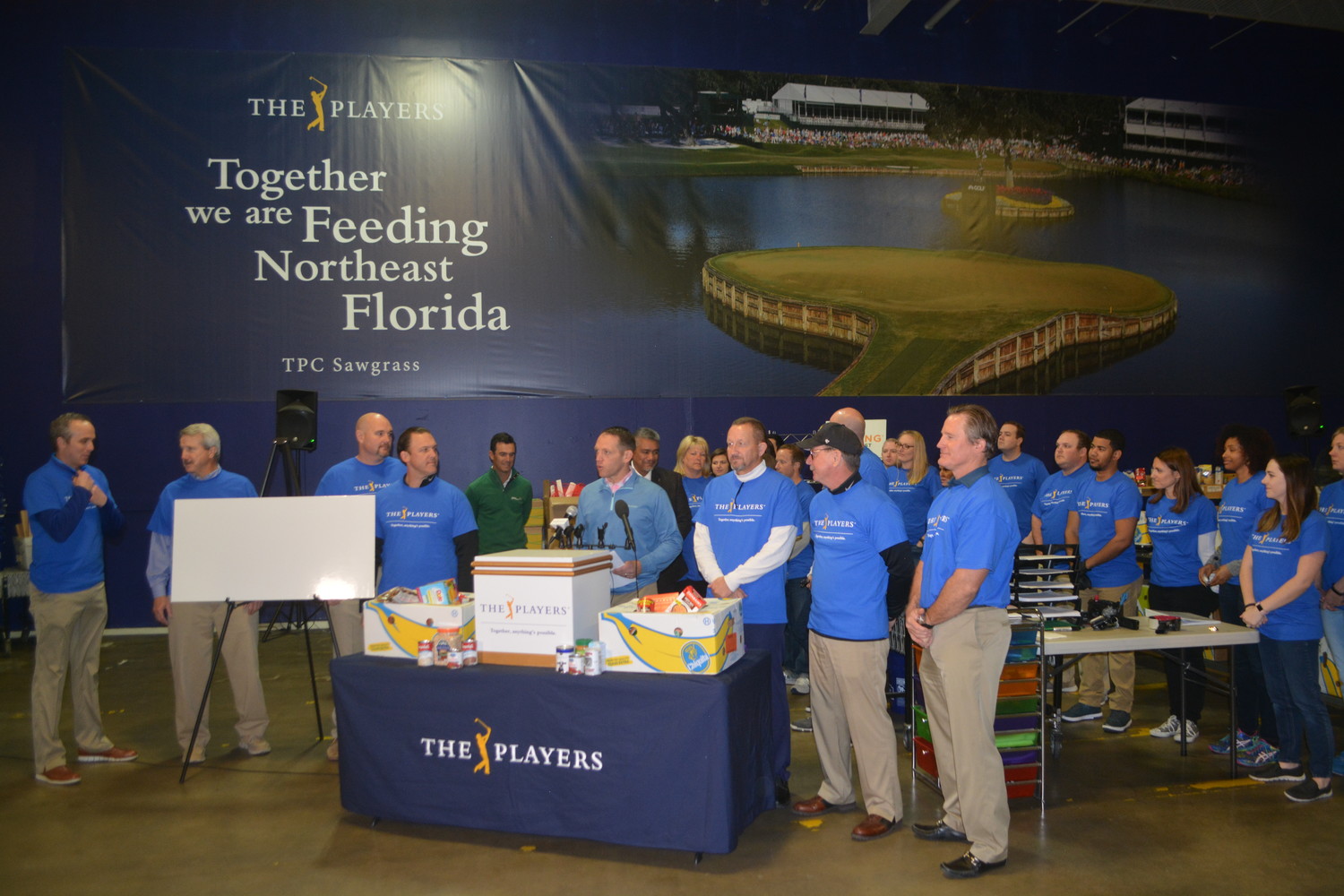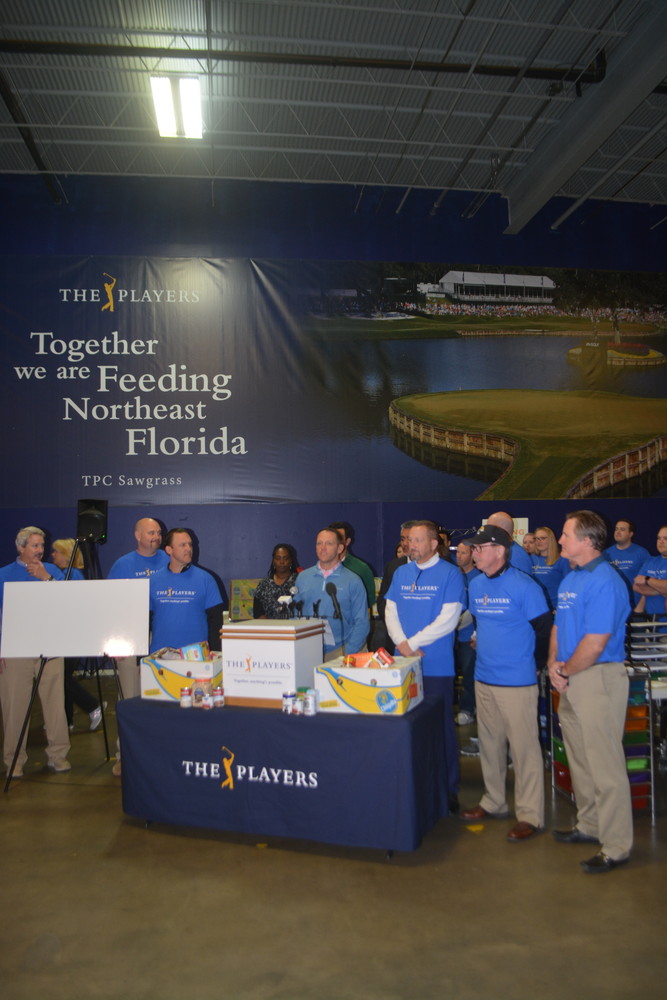PGA Tour’s Billy Horschel and THE PLAYERS volunteer with Feeding Northeast Florida, make $500,000 donation to nonprofit
Four-time PGA Tour winner Billy Horschel took a break from the golf course Tuesday, Jan. 16, to volunteer at a Feeding Northeast Florida warehouse and announce a half million-dollar donation to the nonprofit on behalf of THE PLAYERS Championship.
Horschel teamed up with Feeding Northeast Florida volunteers and PLAYERS Championship staff to box, store and organize food for families in need to start the event. Afterward, the PGA Tour winner promised to contribute thousands of dollars to the nonprofit at a press conference.
“As a player on the PGA TOUR, we get to see first-hand how our tournaments benefit the communities where we play,” Horschel said prior to the check presentation. “As a resident here in the Jacksonville area, I’m proud of the work THE PLAYERS does for organizations like Feeding Northeast Florida. To further my commitment to Feeding Northeast Florida, I will pledge $1,000 for every birdie and $5,000 for every eagle I make during THE PLAYERS 2018, and I ask those who are able, and willing, to make a donation with me.”
Later, Horschel announced that THE PLAYERS Championship will make a $500,000 grant donation to Feeding Northeast Florida as the press snapped photos of a ceremonial check. The nonprofit’s interim CEO Frank Castillo was thrilled with the donation.
“This generous $500,000 grant from THE PLAYERS will allow us to continue investing in organizations that help break the cycle of poverty, giving local children and families, seniors and veterans hope for a better future,” Castillo said. “We are proud to partner with THE PLAYERS – an organization dedicated to positively impacting Northeast Florida.”
The organization estimates that the $500,000 grant will equate to 3 million meals for Northeast Florida residents who are struggling to put food on the table.
Furthermore, Chantrae Cottingham – a recipient of Feeding Northeast Florida’s partner agency Daily Manna Serving Center – delivered an emotional speech on how charitable initiatives save lives. Cottingham relocated to Jacksonville to get a fresh start after battling drug abuse.
"My fresh start was not easy," she said. "I had no transportation, and jobs were not easy to come by. With little money, I had no idea how I was going to take care of myself. Knowing that I couldn't do this on my own, I reached out to some other charitable organizations and because of their help, I was able to secure a job as a school crossing guard."
Despite having a steady source of income, Cunningham struggled financially and could barely feed herself. After being directed to Daily Manna Serving Center, Cunningham said she received desperately-needed help in the form of a box with a variety of foods.
“Every food group was represented,” she said. “They gave me so much food and said, 'See you next week.’ I was shocked, I was amazed that I could go back and get more after all they gave me that one time.”
In addition to job security, Cunningham sought an education and an ensuing career in the field of logistics. In December 2016, she earned an Associate in Science degree from Florida State College at Jacksonville after graduating at the top of her class – but she suffered a setback.
"I survived several strokes and so far, I have not been able to use my degree," she said. "I've been going to therapy three times a week."
Cunningham may not be cleared for work yet, but she described her life today as "much better" thanks to the efforts of THE PLAYERS Championship, Feeding Northeast Florida and her surrounding community. She summarized her experience with Daily Manny Serving Center in two words: “life saver.”
Food insecurity in Northeast Florida
According to data provided by Feeding Northeast Florida, 20 percent of Duval County’s population, and about 13 percent of St. Johns County’s population are food insecure. Meanwhile, the child food insecurity rate is 23 percent for Duval and 19 percent for St. Johns. Castillo said the numbers reflect a real problem.
“In my opinion, the food insecurity issue is nothing short of an economic problem,” Castillo said in an exclusive interview with the Recorder. “If you believe my premise that the meal gap totals $160 million in our community in terms of a budget shortfall with families, then think of the ramifications of that … In addition to that economic shortfall, the direct cost of insecurity to help is almost $800 million, which means food insecurity has almost a $1 billion impact in Northeast Florida.”
Feeding Northeast Florida distributed more than 12.5 million meals in the community in 2017, Castillo said. The nonprofit hopes to exceed last year’s totals in 2018.
“More than anything, we are focused on saving full-service organizations more money than we did last year,” Castillo said. “If we saved them 5 million last year, we want to save them 5-and-a-half million this year because that’s where the investment needs to be made. The issue of food insecurity cannot be addressed in isolation.”
Castillo also noted that the organization is distributing healthy food that won’t compound the difficulties faced by food insecure families. According to the CEO, 57 percent of those served by the nonprofit are working families with either full or part-time employment in the household, 87 percent live in permanent housing and 20 percent have at least one family member who is serving or has served in the military.
Feeding Northeast Florida offers food and resources to pantries, soup kitchens, homeless shelters and residential programs throughout Northeast Florida. A few agencies the group has worked with include Beaches Emergency Assistance Ministry (BEAM), Salvation Army, Barnabas Center, Trinity Rescue Mission and more. For more information on the organization, visit www.feedingnefl.org.


